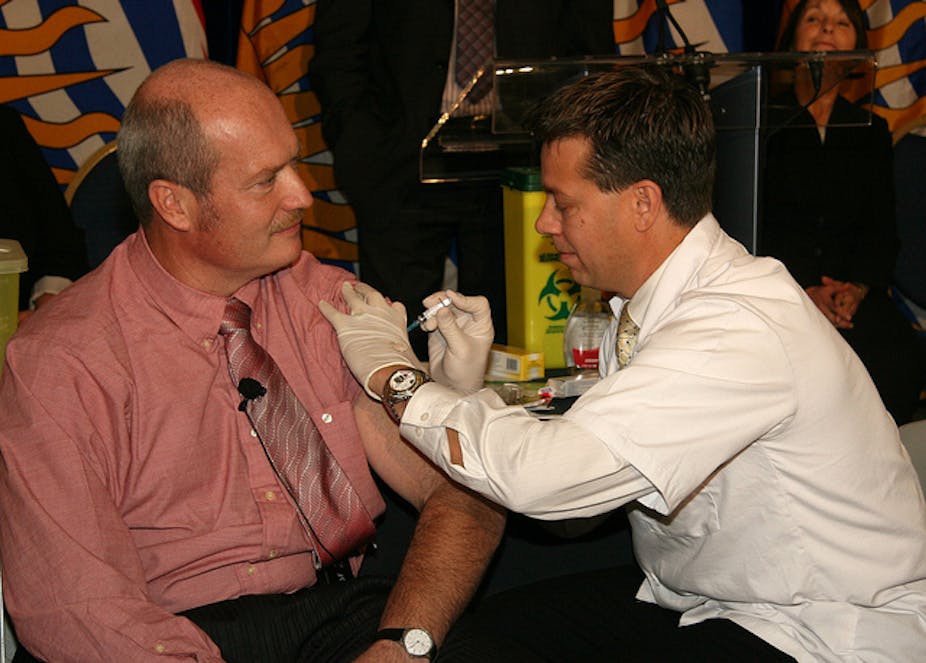Receiving the flu vaccine may almost halve the chance of a heart attack for middle-aged people with narrow arteries, a new study by Australian researchers has found.
Heart disease kills and disables more Australians than any other disease.
The authors of the research, published in the journal Heart, suggest policy makers should consider this new evidence in any decisions around extending the age cut-off for vaccination.
People aged between 50 and 64 are not always included in routine vaccination programs in Australia and the UK.
Before the risk of cardiovascular illness was considered, the benefits of including younger age groups into flu vaccine programs had been judged not to be worth the cost.
The authors of the study looked at 559 patients over the age of 40 who were referred to a Sydney hospital during the winter months of 2008 to 2010.
Those who were not vaccinated for flu were almost twice as likely as vaccinated subjects to have a heart attack.
The researchers also found that a recent respiratory infection was more common among those patients who had suffered a heart attack.
“The potential population health impact of influenza vaccination, particularly in the age group 50–64 years, who are at risk for acute myocardial infarction (heart attack) but not targeted for vaccination, should be further explored,” the researchers concluded.
“Our data should inform vaccination policy and cardiologists should be aware of missed opportunities to vaccinate individuals with ischaemic heart disease (coronary heart disease) against influenza.”
Professor Raina MacIntyre, a lead author of the study, said almost 10% of people admitted to hospital with heart attack had flu.
“This suggests that it is a precipitant of a heart attack,” she said.
“Inflammation of any kind makes the blood more prone to clotting.”
Minimising risk
Julie Redfern, Senior Research Fellow, Cardiovascular Division at George Institute for Global Health welcomed the finding.
“Prevention of heart attacks and cardiovascular disease is a national health priority. Improving risk factors and implementing other simple measures aimed at preventing heart attacks and reducing the burden of disease are of great importance,” said Dr Redfern, who was not involved in the study.
“The potential of this study, after further research, that found a benefit of the flu vaccination on heart disease risk is important and could be one strategy that help minimise future heart risk.”
Garry Jennings, Director and CEO, Cardiologist at Baker IDI Heart and Diabetes Institute said the researchers had made a very interesting finding.
“It is not possible to say whether the flu vaccination was protective or whether people who have flu injections have other characteristics that lower their risk of heart attack. There is some support for the latter in that flu itself did not seem to increase the risk but people who had flu vaccination had lower risk,” said Dr Jennings, who was also not involved in the study.
“As the authors point out, this is cause for further investigation, particularly as there are some theoretical links related to inflammation that might have a role in the timing of a heart attack.”

